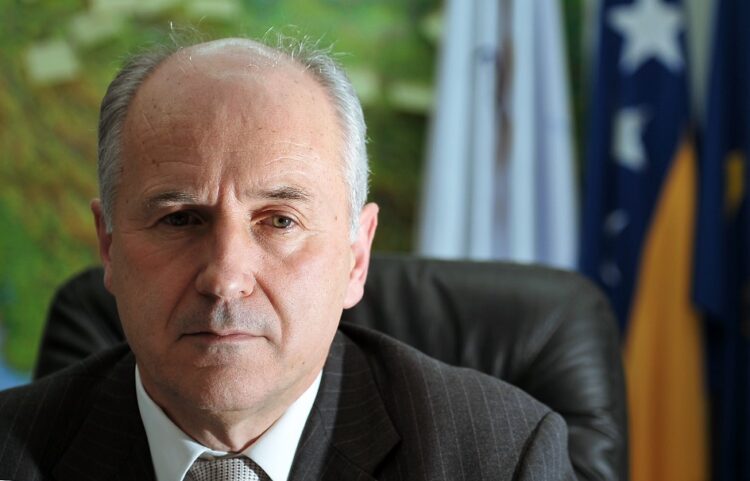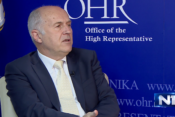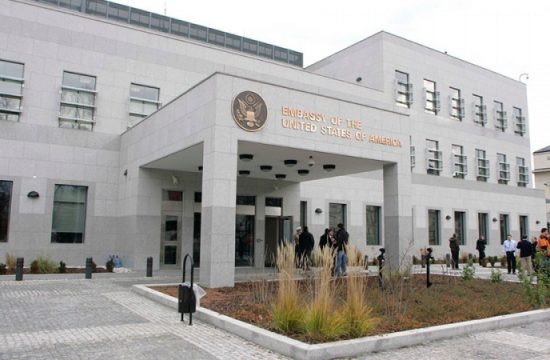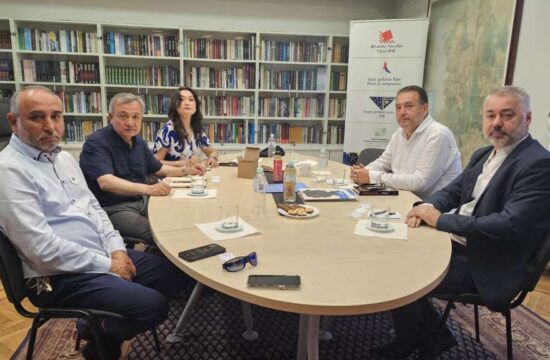
The Germany-based Society for Threatened Peoples, together with associations of survivors and civil society organisations in Bosnia, appealed to Bosnia's international administrator, Valentin Inzko, to urgently impose a law that would ban genocide denial and the glorification of war criminals in the country.
Inzko is the High Representative in Bosnia and Herzegovina and is overseeing the civilian implementation of the 1995 Dayton Peace Agreement that ended the Bosnian war. He has the option to utilise the so-called ‘Bonn Powers’ – a special set of powers which allow him to, among other things, impose and annul laws or fire officials in Bosnia.
The appeal of the associations, supported by the Heinrich-Boll Foundation and former High Representative in the country, Christian Schwarz-Schilling, noted that their members organised protests last year when the Nobel Prize for Literature was awarded to Peter Handke, a genocide denier.
“Together with the Mothers of Srebrenica and the survivors of the concentration camps in Bosnia, who do not allow war crimes and genocide to be denied and forgotten, we expressed our indignation over the denial of genocide, which is widespread in Republika Srpska and Serbia,” the associations said, adding that genocide denial has “entered the discourse and mainstream at the European level and could inflict serious damage on post-war generations and young people around the world.”
The search for more than 1,000 victims from Srebrenica is still ongoing and the locations of many more mass graves remain unknown, the associations said.
Facing the past and reconciliation are impossible in a country where institutions are named after war criminals, such as Radovan Karadzic, and provocative monuments are erected in “ethnically cleansed areas” in Bosnia’s Serb-majority Republika Srpska (RS) entity, they said.
They added that the continuous threats from Republika Srpska that it will secede are “unbearable and unacceptable.”
“The international community must oppose destabilization and secession and strongly condemn such efforts. Denial of genocide must be stopped before Bosnia and Herzegovina joins the European Union and joins NATO,” their appeal said.
The associations noted that the United States blacklisted the Serb member of Bosnia’s Presidency, Milorad Dodik, because of his “destructive policy” toward Bosnia and Herzegovina, but that EU countries did not follow suit, despite numerous appeals.
However, the associations welcomed the recent adoption of the Magnitsky Act in the European Union.
The Magnitsky Act is a law passed by the U.S. Congress in 2012 which allows the U.S. government to sanction all those it perceives as human rights offenders, freeze their assets and ban them from entering the U.S.
The adoption of a law banning genocide denial and glorification of war criminals in Bosnia would represent an even more important step for the country's stability and the future of future generations, they argued.
The associations said that MPs from Republika Srpska and Bosnia’s main Croat political party, the Croat Democratic Union (HDZ BiH) have been blocking the adoption of such a law in the Parliament and that there is no other way for it to pass other than using the Bonn powers.
“We are still convinced that peaceful coexistence between different peoples in Bosnia and Herzegovina is possible. Before the war, Bosnia and Herzegovina was a ‘small Europe’ which, thanks to its multi-religious, multicultural and multiethnic composition, could be an example to many countries around the world,” they said.
“Please, do not disappoint us,” the appeal concluded.





